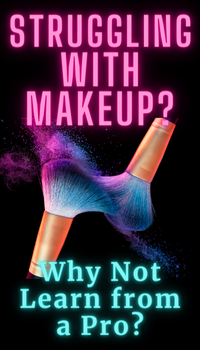Truth and Consequences: Thoughts on disclosure
 Recently, I was engaged in a pleasant daydream on the beach at Cape Cod when I heard a friend from graduate school, now a sports psychologist, talking to my husband about the superstitious practice among baseball players, coaches, and sports announcers of refusing to mention that a pitcher has a no-hitter going in the mid to later innings of a game. Our friend was making the case that it might actually hurt the pitcher’s chances, based on psychological research indicating that if one conceals an important fact — essentially, keeps it a secret — it wastes a lot of psychic energy and can eventually prove dangerously distracting. He made the case that it would be better to state the obvious and let the play unfold, unfettered by the effort required to ignore the elephant in the room (on the field?).
Recently, I was engaged in a pleasant daydream on the beach at Cape Cod when I heard a friend from graduate school, now a sports psychologist, talking to my husband about the superstitious practice among baseball players, coaches, and sports announcers of refusing to mention that a pitcher has a no-hitter going in the mid to later innings of a game. Our friend was making the case that it might actually hurt the pitcher’s chances, based on psychological research indicating that if one conceals an important fact — essentially, keeps it a secret — it wastes a lot of psychic energy and can eventually prove dangerously distracting. He made the case that it would be better to state the obvious and let the play unfold, unfettered by the effort required to ignore the elephant in the room (on the field?).
My sun-drenched mind wandered to the potential relevance of this principle to the question of disclosure of an individual’s transgender status, a subject that comes up frequently in my conversations with therapy clients. What is the psychological cost of keeping silent about one’s transgender identity, compared to the consequences of revealing it? Well, my clinical experience tells me that it depends on a number of factors. First, there is the individual’s “position” on the transgender continuum. In the case of those who cross-dress on an occasional basis, it can be argued that disclosure to others is more of an option than an imperative. If an individual comes to believe that s/he is transsexual and will probably go through a public transition, the question is not whether to disclose, but when, and how. I will tackle that topic in a subsequent column, but for today, I want to raise the issues involved when disclosure is more or less optional.
Let’s start with the potential negative consequences of disclosure. To illustrate, I’ll quote a scene from the film TransAmerica. in which Bree, the transwoman parent, and her newly revealed son Toby confront the issue after a dramatic and unintended revelation:
Toby: “She’s not my mother. She’s not anyone’s mother. She’s not even a woman! She’s got a dick!   You’re a f-in’ lyin’ freak!”
Bree: “Just because a person doesn’t go around blabbing her entire history to everyone she meets doesn’t make her a liar.”
Toby: “So why didn’t you just tell me the truth?”
Bree: “So you could humiliate me in public even sooner?”
Although Bree is a transsexual woman in this film, this exchange illustrates the dilemma any transgender person faces with disclosure. You’re damned if you do, and if you do not, and somebody important to you finds out, you face their sense of betrayal. It seems so unfair — don’t we all hide aspects of ourselves from others? Is keeping the secret of gender variation so much more wrong than keeping other secrets? Bree’s son Toby certainly seemed to think that her secret was qualitatively different than the personal information he kept to himself. And I’d have to say that, in my experience with loved ones who have received this disclosure after years of concealment, it is a game-changer, for sure, though not always a disaster.
Is it acceptable to opt out of disclosure altogether, keep it private? Is it ethical? I think it depends on whom we are considering telling. When it comes to a spouse, even when there is no desire or plan for a public transition, I would argue that the centrality of gender identity, the importance of trust, and the psychological burdens of secret-keeping suggest a benefit to early disclosure. In the case of aging parents, siblings, or other relatives/friends, it is certainly possible to keep the information private if one believes that it would do more harm than good. If one opts to limit disclosure in this way, it is particularly helpful to make use of other outlets in which to share and celebrate one’s transgender identity, such as conferences and support groups.
With young children, I see no need and no particular benefit to disclosing a parent’s part-time crossdressing activities, and in the case of adolescents, I would definitely advise against it, since that is a particularly vulnerable developmental period. Parents of young children and adolescents should therefore take special care not to inadvertently expose their transgender interests and behaviors. Once children have reached young adult status, it seems reasonable to reconsider the question of disclosure if the potential gains for both parent and child can be seen to outweigh the risks (obviously, an inexact science).
The positive side of the disclosure equation is that there are potential benefits, including growth of trust and intimacy, the joy that comes from being known at a deeper level, a lifting of the guilt and fear that goes along with keeping this secret, and an overall increase in self-esteem and well-being, assuming that the disclosure is met with some acceptance by the other person. The potential for such benefits is real, in my experience, and the chances for a positive outcome can be increased by paying attention to some basic principles. First, ask yourself, what is it that you hope to gain by telling the person? Why do you want them to know? Is it more for your own convenience, or is there some potential for this information to benefit the other person and the relationship as well?
From my own ethical perspective as a Contextual therapist, I am guided in such matters by the fact that all trust-based relationships need to maintain a balance between an individual’s need for self-delineation and the need for due consideration of the needs of the other. Self-delineation can be defined as 1) the individual’s honest and fearless articulation of his/her own unique self, apart from the demands of the world and the expectations of others, and 2) an attempt to make fair claims on behalf of one’s true self in close relationships, accepting one’s own authority, rather than relinquishing it in exchange for illusory safety, security, comfort, or “normalcy”. Due Consideration, on the other side of the equation, involves an equivalent fair hearing of the the side of others with whom we have close relationships, and a willingness to negotiate differences in good faith. In this way of thinking, the positive gains from transgender self-disclosure can only be gained if the trans individual is willing and ready to hear and consider the side of the person receiving the information. By this, I mean that you have spent time imagining the way in which your revelation will affect their world, and are ready to hear and consider their response, without becoming defensive or withdrawing.
In my own practice, what I most often see are trans clients who feel more or less comfortable with their inner selves, but are unsure what they are entitled to do about it, and/or how to make fair claims for transparency in relationships. Many feel that this area is a mine field too dangerous to enter unless they are obligated to do so as a step toward a public gender transition. I would argue that there are substantial personal and interpersonal risks involved in the choice to remain silent, too. One can suffer emotional and even physical exhaustion from keeping a secret of this magnitude. For example, a study done at UCLA found that HIV positive gay men who were still in the closet showed a more rapid progression toward disease and death than those who were out about their gay identity. In the interpersonal realm, secrecy precludes a degree of intimacy, and the risks of accidental disclosure can lead to damaged trust and potential abandonment.  These are weighty considerations, and should be carefully examined when contemplating the risks and benefits of self-disclosure.
As always, I welcome your questions and comments. In my next column, I will talk about the factors involved in self-disclosure with transsexual individuals, both prior to and after transition. Until then, enjoy the coming of the summer solstice, and try to embrace the hard truths revealed by the full-length mirror as bathing suit season approaches!
Category: Transgender Body & Soul










